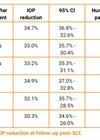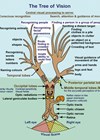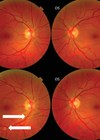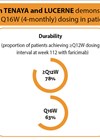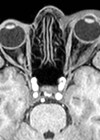Ophthalmology
Real-world experience and outcomes of SLT laser used as a first-line treatment in ocular hypertension patients in a United Kingdom National Health Service setting
The management of raised intraocular pressure (IOP) in the context of ocular hypertension (OHT) and primary open angle glaucoma (POAG) remains a major contributor to the workload of ophthalmology units across the UK. Treatment of these conditions has historically centred...
Code-Free Deep Learning: a step into the future of ophthalmology
A new focus has arisen within the research domain of artificial intelligence (AI) in healthcare called code-free deep learning (CFDL), and recent research demonstrates that ophthalmology is becoming one of the leading specialties in this field. Artificial intelligence (AI) is...
OBITUARY: A short tribute to Mike Sanders, Neuro-ophthalmologist
Mike Sanders was Consultant Neuro-Ophthalmologist at St Thomas’ Hospital and the National Hospital, Queen Square in London, 1969 to 1999. He passed away on 25 July of this year. Over this 30-year period he had huge influence over the evolution...
FAQs about cerebral visual impairment (CVI): identifying and helping those affected
Cerebral visual impairment is common in both adults and children, yet the diagnosis can easily be missed unless one is tuned into the presenting features. This article provides a succinct introduction to this important topic. What is vision? Vision is...
Understanding spaceflight-associated neuro-ocular syndrome (SANS): what do we know?
Introduction Formerly known as visual impairment and intracranial pressure syndrome (VIIP), space-related neuro-ocular syndrome (SANS) is defined by a collection of ophthalmic and neurological findings in astronauts after long-term spaceflight [1]. Changes in the eyeball, such as hyperopic shift, during...
Broadening of treatment options for potentially blinding retinal conditions
Rod McNeil provides an update on a promising bispecific antibody recently approved for treatment of neovascular age-related macular degeneration (nAMD) and diabetic macular oedema (DMO) and considers emerging developments in biosimilars to established anti-vascular endothelial growth factor (anti-VEGF) therapies, including...
Lost in translation
The article that follows is a collection of reflections and observations by Peter (British) and Nathan (Singaporean) living and working in each other’s countries. Peter Cackett “Best thing about this place is it’s not still full of pompous ex-colonials who...
Pathway innovations to address cataract services post-COVID-19
Background The demand for cataract services prior to the COVID-19 pandemic was already recognised to be high and growing - in the face of an ageing population and reduced surgical thresholds. When added to the growth in demand for ophthalmic...
My Top Five: Digital ophthalmology revision resources for medical students
Ophthalmology is a broad and exciting field to study but encountering the vast number of topics it contains for the first time in medical school can be a daunting prospect. Building a solid foundation of knowledge in the subject is...
Professor Tariq Aslam leaves role as co‑editor of Eye News
Professor Tariq Aslam, co-editor of Eye News for nearly a decade, will be stepping down from his role. Prof Aslam has been a guiding influence on the magazine since he first worked on a publication, the December / January issue...
Randomisation, confounding & observational methods in ophthalmic epidemiology
Randomisation and confounding Understanding the relationship between an exposure and an outcome of interest is the central challenge in ophthalmic epidemiology. The exposure may be aetiological, taking the form of a putative risk biological factor, or therapeutic, in the form...
Insects, swelling and sight loss: a case of orbital inflammatory syndrome
Despite being the most common cause of painful orbital mass in adults and the third most common orbital disease, orbital inflammatory syndrome still proves to be a difficult ocular condition to diagnose, treat, and manage. A 41-year-old lady presented to...


